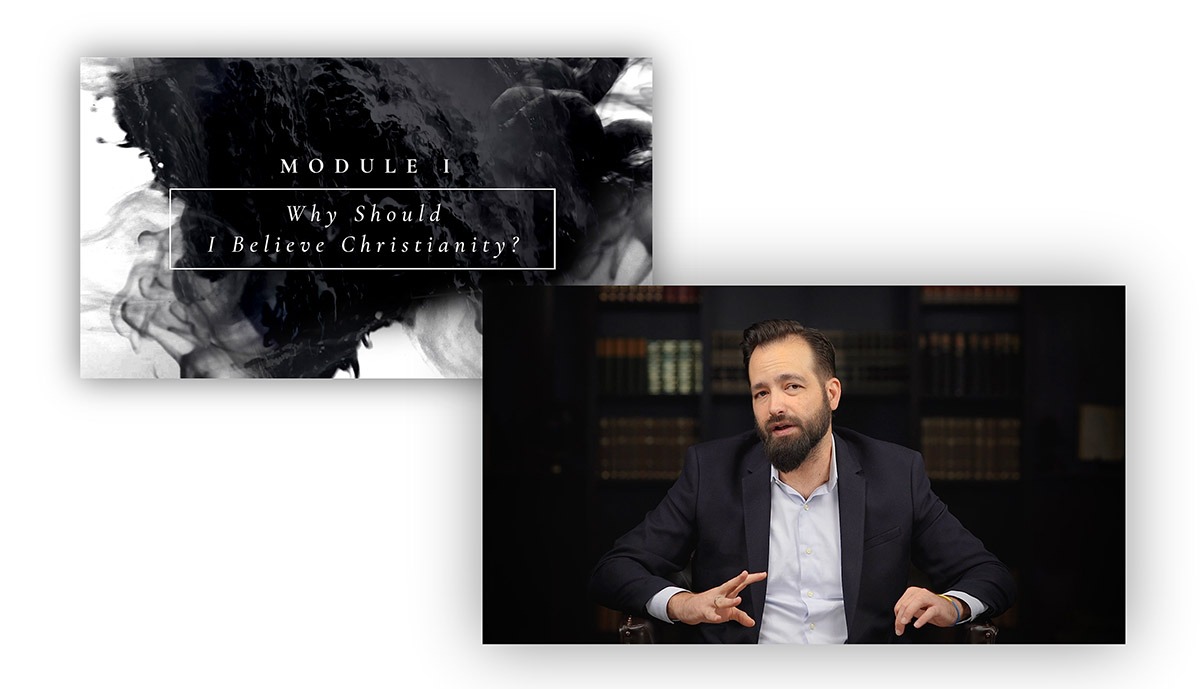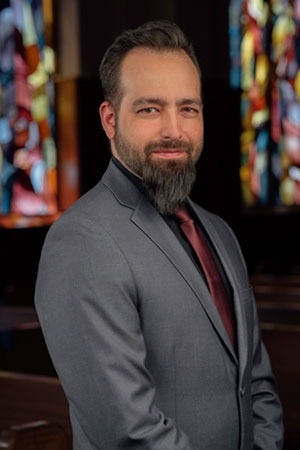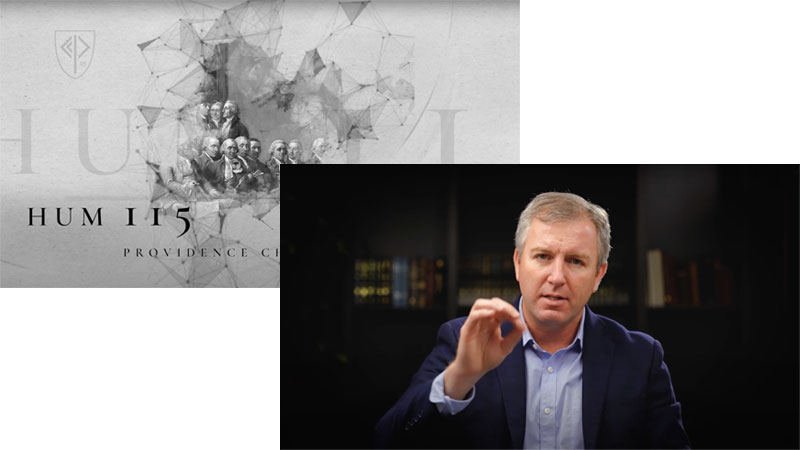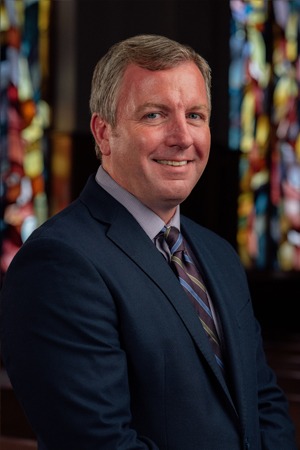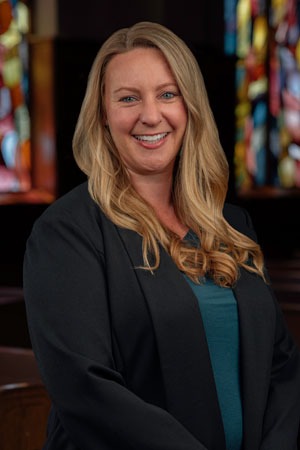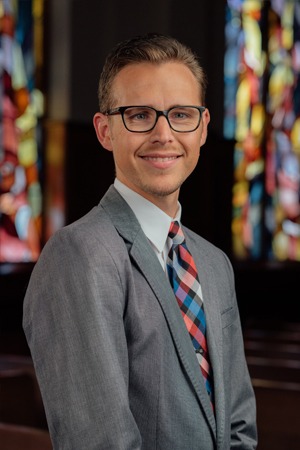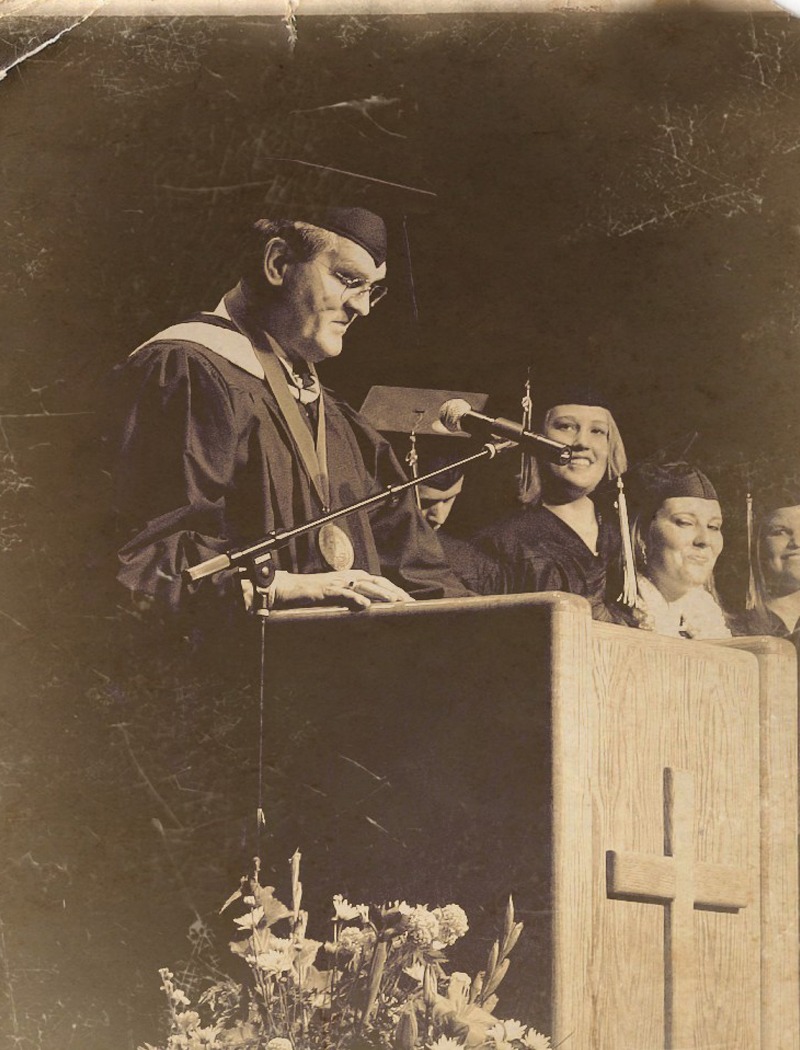MUSIC IN CHURCH TODAY by Dr. Lawrence R. Mumford

Dr. Mumford and his wife (center) took the Music History class to lunch and a performance of the Pasadena Symphony earlier this semester.
Music contributes enormously to our lives as Christians. We sing, or at least sing along, in church, at home, at parties, and even in the car to music from hundreds of composers, vocalists, instrumentalists, producers, and other artists stored on our smartphones, streaming services, CDs, and radios. Christians in past centuries could not even imagine such convenience or quantity. Yet music in church is a subject that has been a source of considerable controversy over the last quarter century. As a music professor at Providence, and as a composer and former church music minister myself, I have often pondered the many differences of opinion. Here are a few ideas, some of which are extracted from my article published in the June 2011 issue of Christianity Today.
A TALE OF TWO STYLES
There have been many arguments used to justify the inclusion, and even the dominance, of “contemporary Christian music” in churches. It is identical in style and instrumentation to the popular music that every attendee hears constantly on the radio, in stores, behind television ads, and in many films. It also compliments the often large collection of recordings that consumers have amassed since as far back as the years when the first Beach Boys and Beatles albums were released. When it is performed live — especially with lighting effects, backdrops, and loud amplification — it evokes the excitement of a stadium rock concert. In fact, if American society by 2016 had allowed pop music to completely replace all other styles, it might be reasonable to conclude that churches should do likewise. After all, if the congregation hears nothing but this music all week long, why should the church provide anything different on weekends — other than, of course, Christian lyrics?
But the simple truth is that our culture has not eliminated all other styles. The most obvious competitor is film music, which is a compendium of both classical and popular elements displayed on a large canvas. Hans Zimmer and John Williams are names familiar to every churchgoer, and neither is a pop songwriter. While many film scores include instrumental sounds made famous by pop, most soundtracks also include several segments performed by professional orchestras or choirs. There is a depth of emotional expression for which a symphonic score, rather than a pop song, is sometimes needed. Television dramas, documentaries, and even video games also favor this alternative. In addition, churchgoers frequently attend local musical theater, symphonic, band, choral, and educational concerts and recitals, none of which is usually dominated by pop songs. Much of the music on these programs is classical, and yet audiences continue to enjoy its timeless qualities. New pieces are sometimes included as well, perhaps even written for the occasion.
THE QUESTION OF EDIFICATION
So one might ask: does today’s church leadership have a responsibility to edify its congregation by presenting both shorter and longer pieces, in a variety of styles, from different eras and for different combinations of instruments? Isn’t this the best way to “…prepare God’s people for works of service, so that the body of Christ may be built up…”(Eph. 4:12)? Contemporary Christian worship songs are often beautiful, exciting, and inspirational, but in my opinion, to summarily eliminate all other kinds of music is not reflective of contemporary life. Such a practice will not only prevent young churchgoers from recognizing and remembering hymns and other sacred music from the past 500 years — it might also produce in them an underdeveloped artistic sense. They may find it difficult to enter and function in a culture that still values intellectual achievement and the art of music in all its guises.
Perhaps surprisingly, many worship band leaders with whom I have spoken agree with this viewpoint. They see themselves as contributors to an exciting and relatively new art form, but they also respect genuine talent and achievement in many other styles of music created for the glory of God.
Dr. Mumford (USC, ’89) has taught various music courses at Providence since 2008. He has had music published by eight different companies. For more information, please visit LawrenceMumford.com.
As a Music student at Providence, you get the opportunity to study under accomplished professors like Dr. Mumford. See our new Music Concentration for more information. It’s not too late to apply for a Music Scholarship but the deadline is approaching quickly, so apply now!
